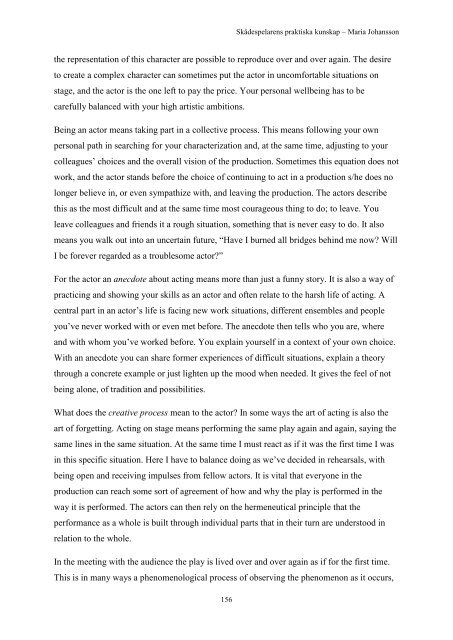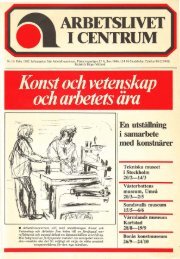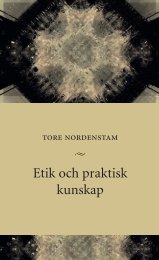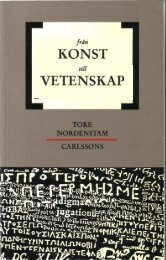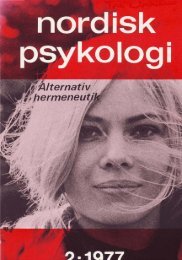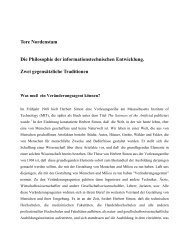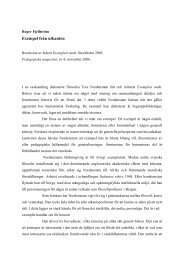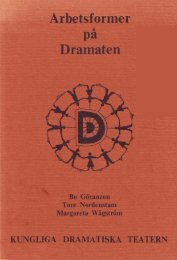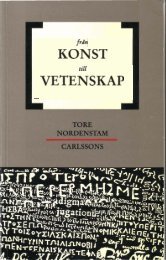Skådespelarens praktiska kunskap
Skådespelarens praktiska kunskap
Skådespelarens praktiska kunskap
You also want an ePaper? Increase the reach of your titles
YUMPU automatically turns print PDFs into web optimized ePapers that Google loves.
156<br />
<strong>Skådespelarens</strong> <strong>praktiska</strong> <strong>kunskap</strong> – Maria Johansson<br />
the representation of this character are possible to reproduce over and over again. The desire<br />
to create a complex character can sometimes put the actor in uncomfortable situations on<br />
stage, and the actor is the one left to pay the price. Your personal wellbeing has to be<br />
carefully balanced with your high artistic ambitions.<br />
Being an actor means taking part in a collective process. This means following your own<br />
personal path in searching for your characterization and, at the same time, adjusting to your<br />
colleagues’ choices and the overall vision of the production. Sometimes this equation does not<br />
work, and the actor stands before the choice of continuing to act in a production s/he does no<br />
longer believe in, or even sympathize with, and leaving the production. The actors describe<br />
this as the most difficult and at the same time most courageous thing to do; to leave. You<br />
leave colleagues and friends it a rough situation, something that is never easy to do. It also<br />
means you walk out into an uncertain future, “Have I burned all bridges behind me now? Will<br />
I be forever regarded as a troublesome actor?”<br />
For the actor an anecdote about acting means more than just a funny story. It is also a way of<br />
practicing and showing your skills as an actor and often relate to the harsh life of acting. A<br />
central part in an actor’s life is facing new work situations, different ensembles and people<br />
you’ve never worked with or even met before. The anecdote then tells who you are, where<br />
and with whom you’ve worked before. You explain yourself in a context of your own choice.<br />
With an anecdote you can share former experiences of difficult situations, explain a theory<br />
through a concrete example or just lighten up the mood when needed. It gives the feel of not<br />
being alone, of tradition and possibilities.<br />
What does the creative process mean to the actor? In some ways the art of acting is also the<br />
art of forgetting. Acting on stage means performing the same play again and again, saying the<br />
same lines in the same situation. At the same time I must react as if it was the first time I was<br />
in this specific situation. Here I have to balance doing as we’ve decided in rehearsals, with<br />
being open and receiving impulses from fellow actors. It is vital that everyone in the<br />
production can reach some sort of agreement of how and why the play is performed in the<br />
way it is performed. The actors can then rely on the hermeneutical principle that the<br />
performance as a whole is built through individual parts that in their turn are understood in<br />
relation to the whole.<br />
In the meeting with the audience the play is lived over and over again as if for the first time.<br />
This is in many ways a phenomenological process of observing the phenomenon as it occurs,


